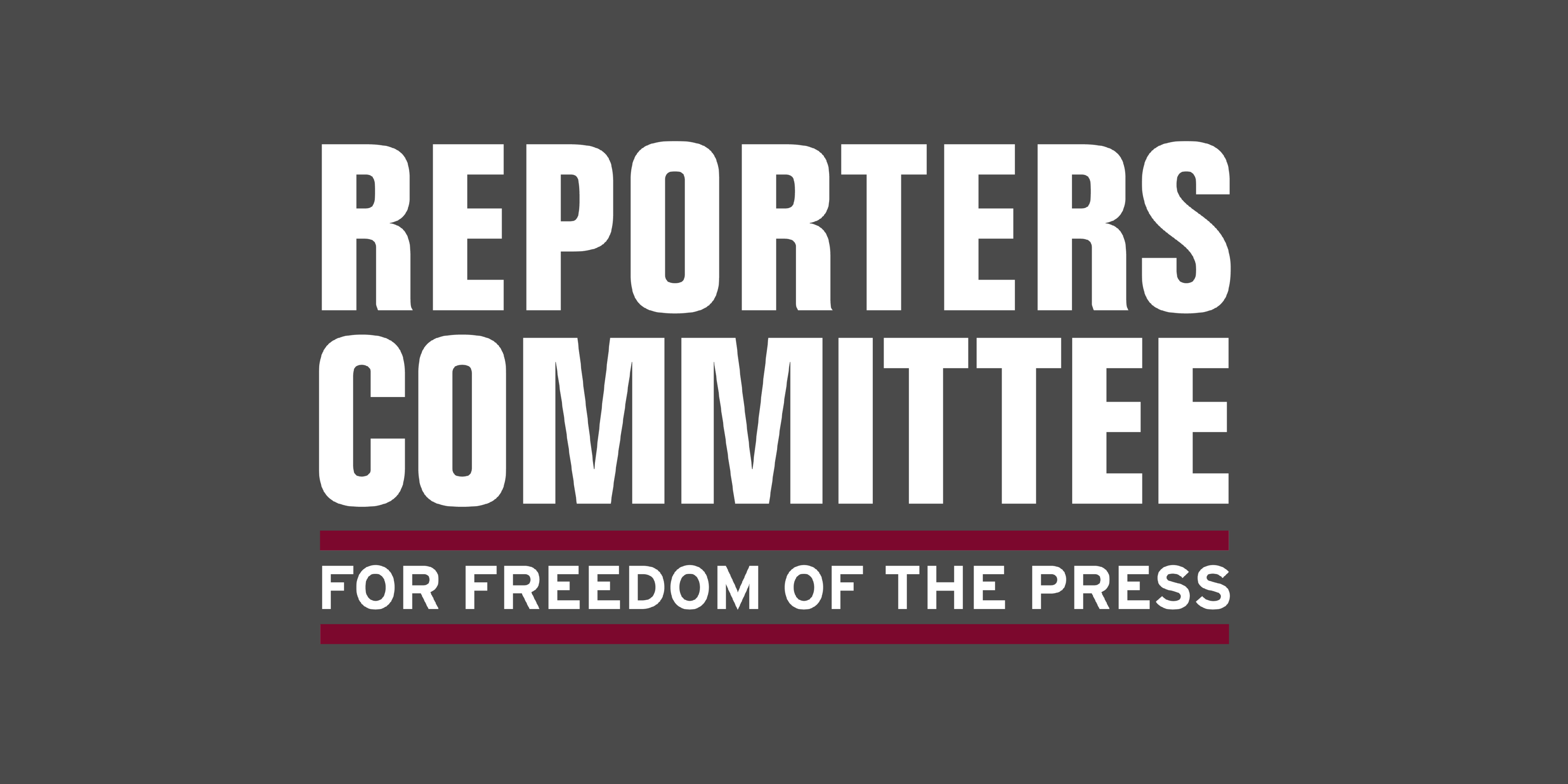Reporters Committee Q&A unpacks anti-SLAPP law

If you follow the Reporters Committee’s work closely, you’ve probably noticed that our attorneys frequently file friend-of-the-court briefs on the subject of strategic lawsuits against public participation. Known as SLAPPs, these lawsuits are frivolous defamation claims intended to intimidate people from exercising their First Amendment rights.
Wealthy people and powerful organizations often use SLAPPs to silence investigative reporting, burying journalists and their newsrooms in legal fees and making them think twice about publishing the next exposé. In short, SLAPPs pose a serious threat to journalism and the public’s right to know.
There is currently no federal law aimed at protecting journalists and others against these dangerous lawsuits. Fortunately, however, 31 states and the District of Columbia have “anti-SLAPP” laws on the books. To varying degrees, these state laws help protect journalists and other members of the public from the worst consequences of SLAPPs.

In the past couple of months, the Reporters Committee has filed multiple friend-of-the-court briefs related to state anti-SLAPP laws and their application in federal court, including in CoreCivic v. Candide Group and Planet Aid v. Reveal.
We recently spoke with Reporters Committee Media Litigation Fellow Charlie Hogle to learn more about the importance of anti-SLAPP laws, why they should apply in federal court and the chilling effect on investigative journalism that would result if they don’t.
What is the purpose of anti-SLAPP laws?
The underlying harm that a lot of state legislatures were trying to avoid with anti-SLAPP laws is journalists and news media outlets saying, “Hey, it’s not worth it to report on this issue because the organization or the people that we’re reporting on are rich and powerful, and even if everything that we say is true, we run a really serious risk of being totally bankrupt or suffering really severe financial harm as a result of a lawsuit, regardless of whether we win the lawsuit.” That could have a really obviously terrible effect on public knowledge, on newsgathering, on regular people’s ability to keep abreast of what’s happening in their world.
The idea behind anti-SLAPP laws is to help protect newsgathering outlets and news media organizations from lawsuits like that, help reduce the costs and, in some cases, shift the costs back onto the people who sue.
Anti-SLAPP laws vary from state to state, but what do most of these laws have in common?
Well, effective anti-SLAPP laws generally have a component that allows the entity being sued to say, “Hey, listen, this is clearly protected speech,” so at a very early stage in the lawsuit, the defendant has to be able to come up with some evidence that shows that there’s a chance they could win this; otherwise, the suit should be dismissed before a ton of time passes and a ton of legal fees pile up.
Another really important part of effective anti-SLAPP laws is “fee shifting.” The idea is that if somebody sues you, and you win under an anti-SLAPP law, the entity that sued you has to pay your attorney fees. That can be a really, really huge deal for smaller news organizations and journalists. It’s like, “Instead of being financially ruined by this lawsuit, which we won, we can get back a lot of the money we spent defending ourselves. And that means we can keep the lights on.” Which reduces the incentive for powerful organizations to try and bankrupt journalists through the courts.
Why are anti-SLAPP laws important?
If you want journalists to be able to do investigations that are potentially highly critical of very powerful and wealthy organizations or individuals, then you should also want journalists to be protected from financially ruinous lawsuits that punish them for exercising their First Amendment rights, and that deter other journalists from doing the same thing.
The absence of anti-SLAPP laws would be really damaging to an independent press and would really hamper the public’s ability to have intelligent conversations about people and organizations that dominate the world we live in.
The Reporters Committee has recently filed a number of friend-of-the-court briefs arguing that state anti-SLAPP laws should apply in federal court. Can you discuss why that’s so important?
The answer comes down to forum shopping. If state anti-SLAPP laws don’t apply in federal courts, then the people who bring SLAPP suits will do everything in their power to get into federal courts, because that way, they’ll be able to get around all the protections that states have granted to their citizens.
If a court rules that provisions of a state anti-SLAPP law don’t apply in federal court, what’s the potential fallout from that?
Some courts have already said that, and so the more that happens, the more plaintiffs are going to try to find those particular federal courts and those circuits to bring their lawsuits in. More and more, that’ll lead to exactly the type of chilling effect that anti-SLAPP laws are designed to prevent. It could also lead to a lot of potentially meritless state defamation litigation making its way into federal courts.
The Reporters Committee regularly files friend-of-the-court briefs and its attorneys represent journalists and news organizations pro bono in court cases that involve First Amendment freedoms, the newsgathering rights of journalists and access to public information. Stay up-to-date on our work by signing up for our monthly newsletter and following us on Twitter or Instagram.
Photo by Anna G. Bahn